Justin Bogie: Alabamians deserve more than a one-time tax rebate
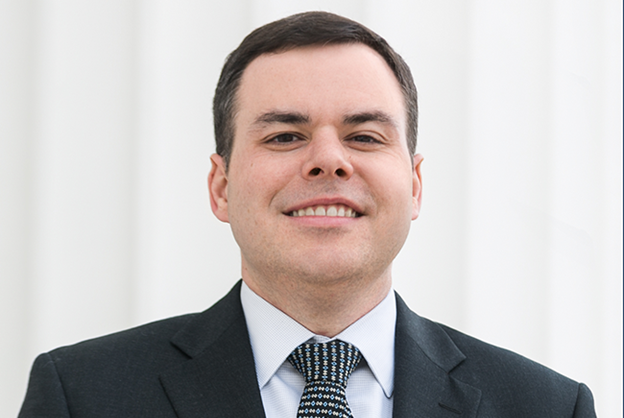
“I think they deserve it.” That is what House Majority Leader Nathaniel Ledbetter (R-Rainsville) said last week when asked about the possibility of using state government’s record revenue surplus to provide Alabamians with a one-time tax rebate. And he is right. The people of Alabama do deserve relief from over-taxation, near record-high inflation, and high gas prices. It is a good thing that the House Majority Leader recognizes that. But they deserve so much more than only a one-time rebate check that will provide only limited economic relief. They deserve permanent tax reforms that will provide benefits to Alabamians for decades to come. To recap, last month, State Senator Arthur Orr (R-Decatur) began floating the idea of giving a one-time tax rebate to Alabamians as a way to “send money back to the people.” Since then, other lawmakers, including Ledbetter, have indicated their support for the proposal. Other than Orr saying the rebates should be “substantial,” there is no indication of the target in mind. According to the Tax Foundation, as of July 2022, 11 state legislatures have chosen to return revenue surpluses to citizens through tax rebates. Rebate amounts ranged from a low of $50 to a high of $850. However, over the same period, 11 states enacted legislation to permanently reduce individual income tax rates, and eight states passed corporate income tax reductions. Fourteen states reduced corporate and/or individual income tax rates in 2021. Four of the states offering tax rebates to citizens also enacted individual income tax cuts in 2022. If Alabama lawmakers are determined to go the tax rebate route, then in conjunction with other long-term tax cuts is the only acceptable way. There are several reasons that Alabamians deserve more relief than one-time rebates alone will provide. First, rebates will not slow the unprecedented growth of state government. By the end of 2022, Alabama’s government is on pace to spend nearly $11.7 billion, 35.5% growth since 2019. Through August, the state already had about $1.7 billion more in cash on hand than it needs to pay existing obligations through September. The last few years have proven that the more money our state government takes from citizens, the more it will put back into itself. That is not what Alabamians, who elected a conservative supermajority to the legislature just four years ago, want. Most would claim that they want a smaller government with less interference in their personal lives or businesses. If steps are not taken to reduce the number of tax dollars flowing into state government, it will continue to grow year after year. What amounts to a one-time stimulus check will not curb the growth of Alabama’s state government. It will merely allow lawmakers to take credit for doing something to provide relief to citizens and then get back to the business of spending your money. Beyond the problem of doing nothing to stop the growth of state government, rebate checks could make economic conditions worse in the short run. The federal government sent out numerous rounds of stimulus checks in 2020 and 2021 under the guise of pandemic relief. However, there is little dispute that the stimulus checks stoked inflation, impacting the same people the money was intended to help. They also provided another disincentive to work. Rebates are a political tool with few consequences for government and little benefit for Alabamians. Kansas lawmakers went so far as to call Democratic Governor Laura Kelly’s rebate plan a “gimmick.” Unless Alabama lawmakers use all the available surplus funds in 2023 for rebates, which is unlikely, it will not even stop government from expanding next year. They could also add fuel to the inflation fire, lowering the purchasing power of your money. Of course, more government spending will have the same effect. The best path forward for providing tax relief to Alabamians is through lower tax rates. A rebate could be a complimentary piece to a broader tax reform package but is not a substitute. Last week, the Alabama Policy Institute (API) called on Governor Kay Ivey and the Alabama Legislature to enact a minimum of $750 million in permanent tax cuts for citizens. This could be achieved through a combination of individual or corporate income tax rate cuts, full elimination of the state’s 4 percent sales tax on groceries, repealing the $.10 gas tax increase, or other options outlined in API’s 2023 policy platform. Revenue surpluses in excess of $750 million each year could be returned to citizens through a rebate. Hardworking Alabamians deserve permanent tax relief that will allow both individuals and industry to flourish for generations to come. They do not want merely a one-time handout. Justin Bogie is the Senior Director of Fiscal Policy for the Alabama Policy Institute.
Bob Dole honored in Kansas as tough but compassionate statesman
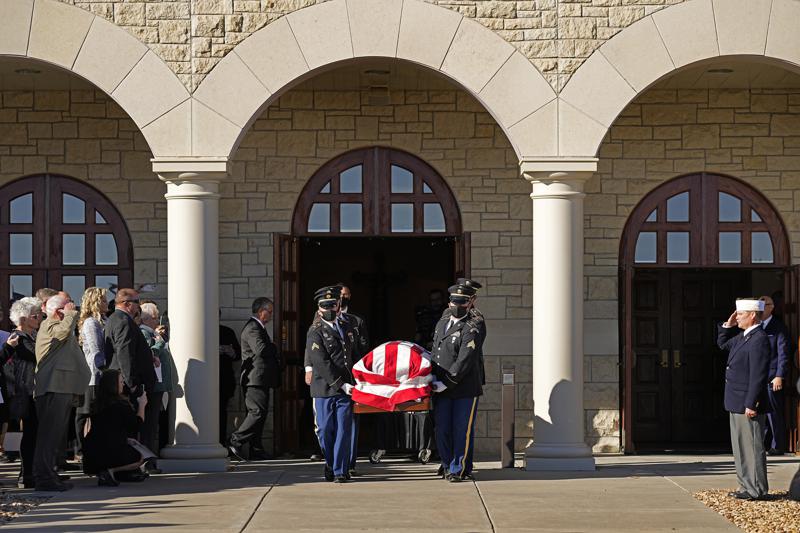
Fellow Kansans on Saturday celebrated Bob Dole as a tough but compassionate patriot shaped by small-town values, a strong partisan leader who could nevertheless work with political opponents, and a war hero who ultimately became “the greatest of the Greatest Generation.” Dole made his last journey to his prairie state for memorial services in his western Kansas hometown of Russell and at the Statehouse in Topeka. He was honored for the military service during World War II that left him severely wounded and the distinguished political career that followed his recovery. Elected officials and former elected officials from both parties said Dole embodied the state’s motto, “To the stars through difficulties,” and never stopped trying to help others. “He did not hide in a time of crisis. He looked for solutions,” former U.S. Rep. Jim Slattery, a Kansas Democrat, said during the Statehouse event. ”I often told Bob he was the toughest man I ever knew, both physically and mentally, but he had a tender heart.” Dole died Sunday at the age of 98 after a lifetime of service that included nearly 36 years in Congress and running as the GOP nominee for president in 1996. U.S. Senate Minority Leader Mitch McConnell, who served more than a decade with Dole in the Senate and later surpassed Dole as the longest-serving GOP leader there, attended both Kansas events as well. Saturday’s events began with a public viewing of his casket and a memorial service at a Roman Catholic church in Russell, the small town some 240 miles (386 kilometers) west of Kansas City where he grew up during the Great Depression. Speakers for the state capital event Saturday afternoon noted that Dole’s career in elective office began in the Kansas House in the early 1950s. The dignitaries at both events included Democratic Gov. Laura Kelly, Kansas’ two Republican U.S. senators, Roger Marshall and Jerry Moran, and former GOP U.S. Sens. Pat Roberts and Nancy Kassebaum Baker. Kelly said in remarks in Dole’s hometown that Russell was “where his roots run deepest.” Dignitaries in dark, formal business attire mixed in the congregation with local residents dressed in less formal farm and work clothes, a KWCH-TV live stream showed. “As we gather here today to come together to salute our state’s most favorite of favorite sons and the greatest of the Greatest Generation, we pause to reflect with immense gratitude on all that Bob Dole’s life meant to Kansas and to Kansans, to our nation and to the world,” Kelly said. Dole — known for a caustic wit that he sometimes turned on himself — also was honored Friday during a service at Washington National Cathedral. President Joe Biden was among the speakers there. Another tribute followed at the World War II Memorial in Washington — a monument to Dole’s generation that he worked to get built. Dole became known as a congressional leader who could bridge partisan divides to pass legislation such as the landmark Americans with Disabilities Act aimed at preventing discrimination on the basis of disability. In Russell, Moran attributed that ability to Dole’s ties to a small town, where people who disagree on politics still mix in their daily lives. Speakers also pleaded for more civility in politics, with Kelly calling on her Statehouse audience to “pledge ourselves to be more like Bob Dole.” Moran added: “Think of all the things he’s been through and how hope had to be so important to his life to get through the day.” Dole will be buried in Arlington National Cemetery, but his casket was flown Friday evening to Salina, Kansas, then transported 70 miles (113 kilometers) west to his boyhood hometown, which now has about 4,400 residents. Oil production allowed Russell to boom when Dole was growing up, even during the Great Depression, with the first local well drilled in 1923, the year he was born. In Russell, Moran quoted Dole’s speech accepting the 1996 presidential nomination, in which Dole said, “the first thing you learn on the prairie is the relative size of a man compared to the lay of the land.” “His family and this community endured the Dust Bowl of the Great Depression,” Moran said. “In Russell, you could feel and see the challenges, the obstacles, the barriers that were put in people’s lives. Nothing was easy.” Republished with the permission of the Associated Press.
Alabama Gov. Ivey signs ban on transgender athletes
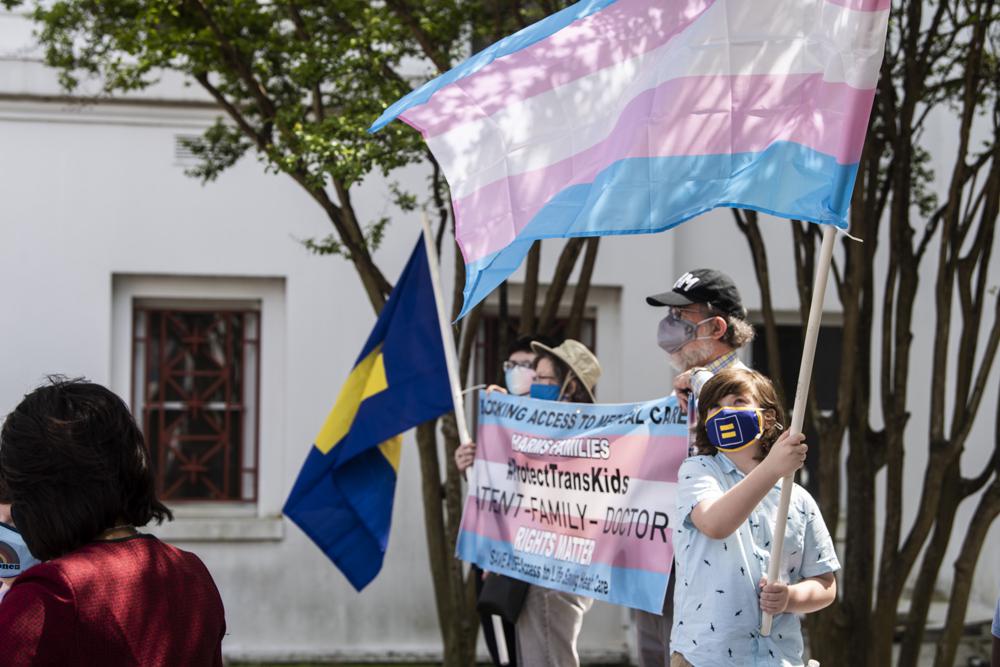
Republican Gov. Kay Ivey on Friday signed legislation restricting transgender students from participating in K-12 sports, making Alabama the latest conservative state to ban transgender girls from playing on female sports teams. Ivey’s office announced in an email that she had signed the bill that says a public K-12 school “may never allow a biological male to participate on a female team.” Asked if the governor had a comment on the decision, spokeswoman Gina Maiola said she could confirm the governor signed the bill but did not elaborate. Supporters of the bill, HB 391, say transgender girls are born bigger and faster and have an unfair advantage in competition. Opponents argue the bills are rooted in discrimination and fear and violate the federal law barring sex discrimination in education. “HB 391 is nothing more than a politically motivated bill designed to discriminate against an already vulnerable population. By signing this legislation, Gov. Ivey is forcefully excluding transgender children. Let’s be clear here: transgender children are children. They deserve the same opportunity to learn valuable skills of teamwork, sportsmanship, and healthy competition with their peers,” Human Rights Campaign President Alphonso David said in a statement. The Alabama House voted 74-19 for the bill sponsored by Republican Rep. Scott Stadthagen of Hartselle. The Alabama Senate voted 25-5 for the legislation. “I want to thank Governor Ivey for her leadership and for protecting the rights of Alabama’s female athletes. Standing up for what is right is not always easy, but it is always the right thing to do,” Stadthagen said Friday. During Senate debate on the bill last week, Republican Sen. Garlan Gudger of Cullman said it is “unfair for biological males to compete and beat females in high school sports.” He said the bill is needed to protect the integrity of female athletic programs. Across the country, Republican legislators have been hard-pressed to come up with actual instances in which a transgender girl’s participation has caused a problem on a girls sports team. The Associated Press recently reached out to two dozen state lawmakers sponsoring such measures around the country as well as the conservative groups supporting them and found only a few times it’s been an issue among the hundreds of thousands of American teenagers who play high school sports. Mississippi Republican Gov. Tate Reeves last month signed a bill to ban transgender athletes from competing on girls or women’s sports teams. Idaho last year became the first state to pass such a ban, but it faces a legal challenge. Kansas Gov. Laura Kelly on Thursday vetoed a bill banning transgender students from girls and women’s school sports. She said the GOP-backed measure is a jobs killer that harms children. Critics of such bills are worried that the measures could cost states from hosting sporting events. Senate Minority Leader Bobby Singleton said last week that the bill will give Alabama a “black eye” as the state tries to recruit industries and sporting events to the state. “We are spending too much time on craziness like this,” Singleton said. As similar bills crop up across the county, the NCAA, which regulates college athletics in the U.S., expressed support for transgender athletes and warned that championships will only be held in locations “free of discrimination.” “We will continue to closely monitor these situations to determine whether NCAA championships can be conducted in ways that are welcoming and respectful of all participants,” the NCAA statement read. The NCAA currently requires transgender women to get drug treatment to lower their testosterone levels before they can compete in women’s sports. Republished with the permission of the Associated Press.
State leaders facing 2nd wave resist steps to curb virus
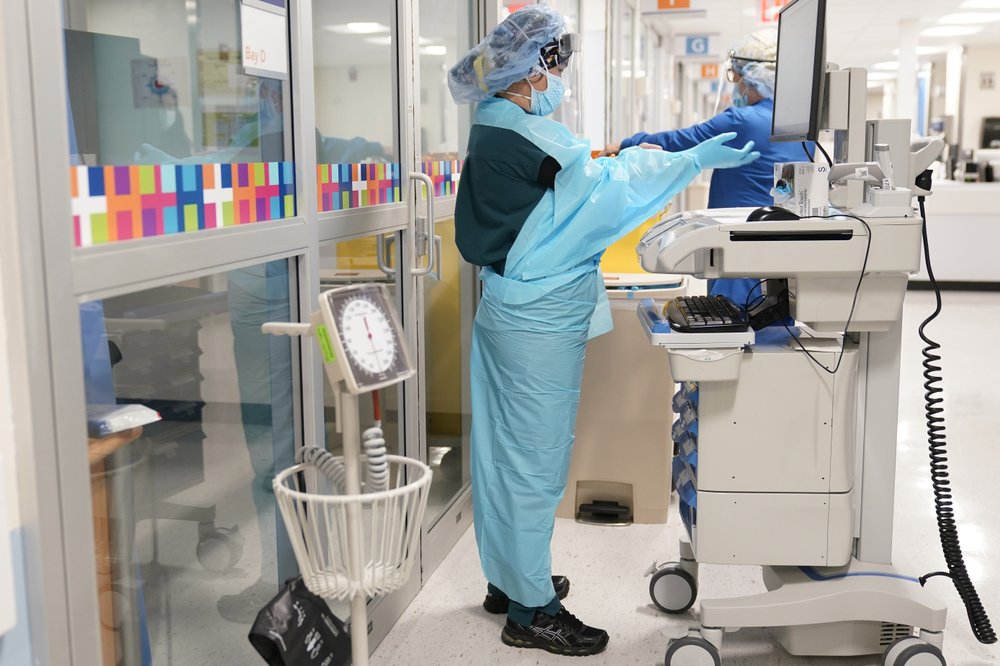
Even as a new surge of coronavirus infections sweeps the U.S., officials in many hard-hit states are resisting taking stronger action to slow the spread, with pleas from health experts running up against political calculation and public fatigue. Days before a presidential election that has spotlighted President Donald Trump’s scattershot response to the pandemic, the virus continued its resurgence Friday, with total confirmed cases in the U.S. surpassing 9 million. The number of new infections reported daily is on the rise in 47 states. They include Nebraska and South Dakota, where the number of new cases topped previous highs for each state. The record increases in new cases have eclipsed the spikes that set off national alarms last spring and summer. During those outbreaks, first in the Northeast and then in Sun Belt states, many governors closed schools and businesses and restricted public gatherings. But this fall’s resurgence of the virus, despite being far more widespread, has brought a decidedly more limited response in many states. Most are led by Republican governors backing a president who insists, falsely, that the country is getting the virus under control. Over the past two weeks, more than 76,000 new virus cases have been reported daily in the U.S. on average, up from about 54,000 in mid-October, according to Johns Hopkins University. Deaths, which usually lag case numbers and hospitalizations, are also rising, from about 700 to more than 800 a day. The virus has now killed more than 229,000 Americans. Nevertheless, many officials have resisted calls to enact measures like statewide mask mandates or stricter curbs on the size of gatherings, casting the response to the virus as a matter of individual decision-making. “At the end of the day, personal responsibility is the only way. People will either choose or not choose to social distance, or choose to wear a mask or not,” said Tennessee Gov. Bill Lee, a Republican. “What we can do is to remind them is that personal responsibility can protect them.” Lee’s state is among those without a blanket mask mandate despite a study released this week showing that areas of Tennessee where people are not required to wear them are seeing the most hospitalizations. In Iowa, where a record 606 coronavirus patients were hospitalized Friday, one health expert said officials there had been too quick to reopen, along with several neighboring states. “If we follow the course that the other Midwestern states like Wisconsin, North Dakota and South Dakota have, we’re going to have trouble keeping up,” said Dr. Ravi Vemuri, an infectious disease specialist at MercyOne hospitals. Republican Gov. Kim Reynolds, who has rejected mask requirements and said Iowans must learn to live with the virus, continued this week to downplay efforts to contain it. On Wednesday, Reynolds, who has made frequent campaign appearances for Trump and other candidates surrounded by crowds of often maskless supporters, poked fun at Theresa Greenfield, a Democrat running in a tight Senate race, for suspending a campaign tour after a staff member was exposed to someone who tested positive. “Theresa didn’t get very far on her RV tour, did she?” Reynolds said. She went on to accuse Greenfield and other Democrats of “hiding in their basements.” The pandemic has put similar pressures on states with Democratic governors, but the politics have played out differently. Kansas Gov. Laura Kelly, a Democrat, has repeatedly tried to impose restrictions but been stymied by the Republican-controlled legislature. She is considering calling lawmakers into a special session to impose a statewide mask mandate. In Wisconsin, where the virus has raged since September, Democratic Gov. Tony Evers pleaded with residents this week to shelter in place to slow the spread. Evers issued a formal stay-at-home order in March, but the state’s conservative Supreme Court struck it down in May. He was subsequently sued over a mask mandate and limits on gatherings in bars and restaurants. The parrying by governors and legislators reflect the way that politics and the personal beliefs of a significant sector of the population have become entangled with supposedly nonpartisan matters of public health. Michelle Riipinen, a 38-year-old resident of Boise, Idaho, said state-mandated school closings, business shutdowns and mask requirements are “draconian measures” that do more harm than good. She said she chooses not to wear a mask. “I believe in personal responsibility and that it is our responsibility as American citizens to choose if we want to wear it or not,” she said. “Our government shouldn’t be making that choice for us.” In Utah, Republican Gov. Gary Herbert has ordered mask mandates and limited social gatherings to 10 people or fewer only in counties with the highest transmission rates, not the entire state. The latter measure includes exceptions for religious services and school events. Full Coverage: Virus Outbreak “This is not an easy thing to enforce. As you drive down the road, you talk about people getting tickets for speeding, but how many are actually speeding?” Herbert said when asked about his resistance to broader mandates. Herbert said Friday he was “disgusted” after someone shot at a state health department office. The incident came a day after anti-mask protesters gathered outside the home of Utah state epidemiologist Dr. Angela Dunn, who recommended that the state reinstate restrictions to avoid overwhelming hospitals. “It’s taken a really big toll on my family and myself,” Dunn said. “I think it’s really unfortunate we live in a state where people feel that it is OK to harass civil servants.” Herbert, who has not heeded Dunn’s recommendation, said protesters were within their rights to criticize him or other elected officials, but that they should leave state employees alone. “I know we’re asking a lot of the people of Utah to be patient,” the governor said. “We know that their time is valuable. I would hope that they would put that in a constructive effort.” Republished with the permission of the Associated Press.
No halt to culture wars during coronavirus outbreak
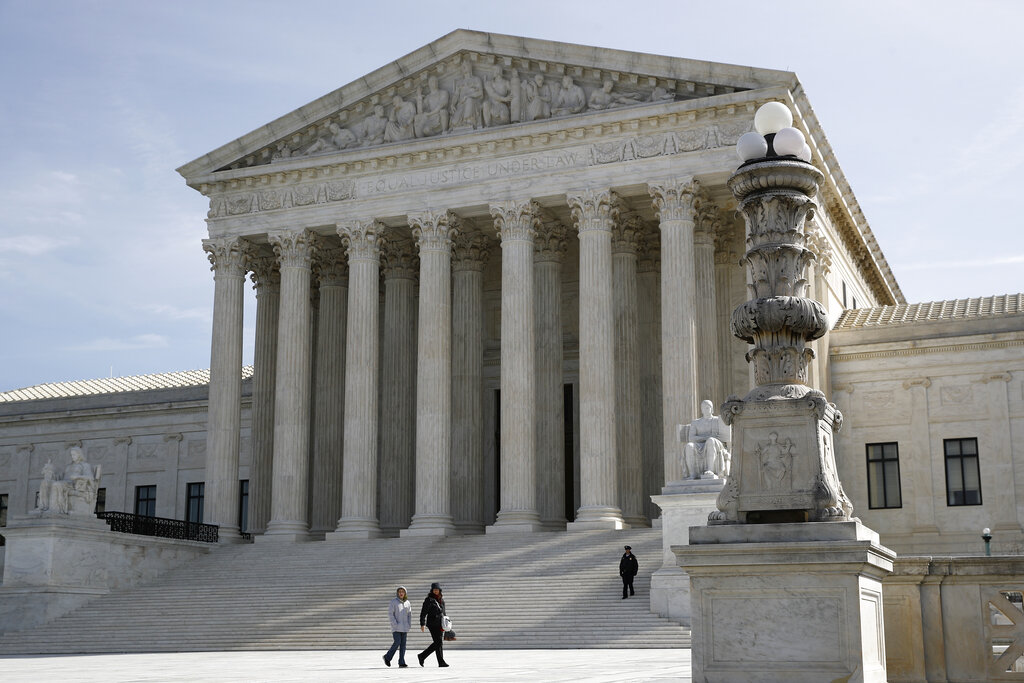
Some liberals are accusing conservatives of using this crisis to advance long-held goals.
Key takeaways from Democratic presidential debate in Iowa
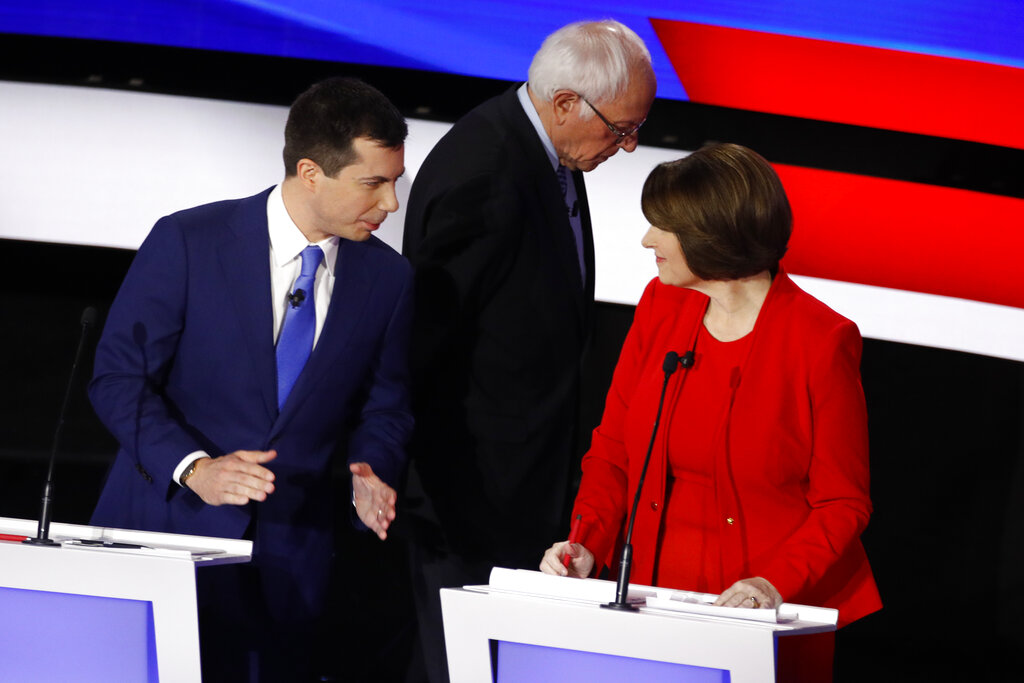
There were several notable moments in the debate.


